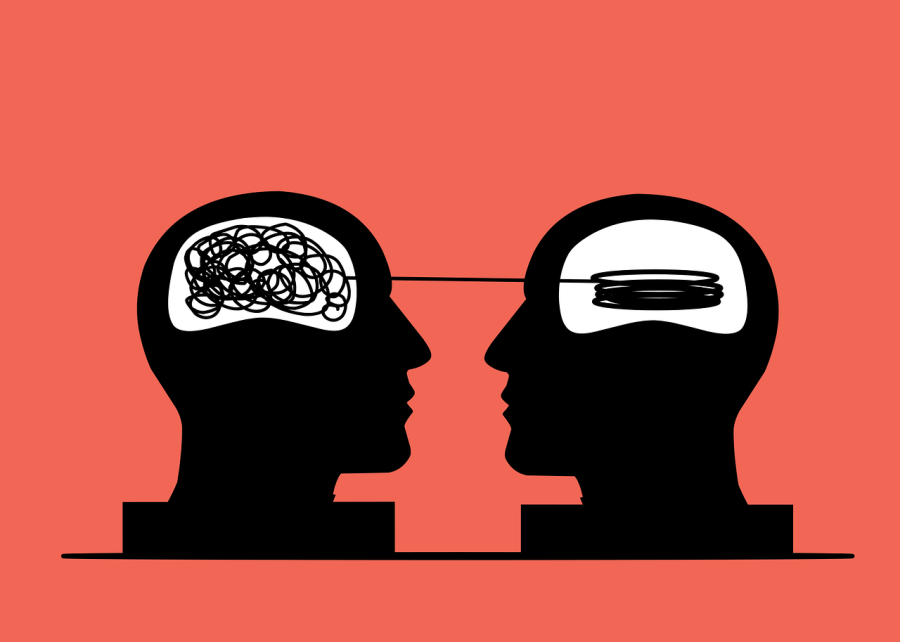Recovering From Someone Refusing Recovery
February 2, 2023
With “Dry January”, a month of sobriety, coming to a close, many go back to living with the realities of having a relationship with someone who suffers from alcoholism. As the rates of alcoholism rise in the United States, more and more family members and friends are affected. Being on the receiving end of the effects of alcoholism can feel suffocating. There is no perfect way to manage a life with someone with a disease like alcoholism, but being able to set boundaries with them and yourself is the first step in your own recovery.
Long-term substance abuse alters the brain function and psychological response. Drinking is often used as a mechanism to ease stress or as a possible reward. There is an increase in dopamine release that trains the brain to associate alcohol with these things, and when in absence, a negative emotional response urges one to drink again. Not only can these habitual behaviors change the chemicals released in one’s brain during these emotional responses, but also create a pathway to dependency. Withdrawal because of this dependency activates the stress circuit in the brain which can increase negative emotions, irritability, and anxiety. An alcoholic’s journey to diseases like Alcohol Use Disorder will not be the same as another. Each individual contains different genetic factors that will determine their level of dysfunction and longevity of abuse. Alcohol dependency is not born overnight, instead it is the result of tolerance making it harder for alcohol to have the same relieving or rewarding effect it once had.
Depending on the age and frequency of abuse, there have been recorded most commonly five different subtypes of alcoholics such as young adult, functional, intermediate familial, young antisocial, and chronic severe. The young adult subtype is the largest subgroup and typically contains people who start drinking in their adolescents that form a dependency in their early twenties. This group is more likely to participate in binge drinking, but drinks at less rates than other groups.
Functional alcoholics are the group that is the most outwardly functional in society. Because of their ability to hold down a job and relationships, it is one of the hardest for one to see in themselves. Unlike the other types of alcoholics, there are less outward consequences to their drinking. Consequences most faced by the functional group are ones that occur in their relationships whether that would be with romantic partners, children, friends, etc. This group is mostly composed of middle aged persons who started drinking at around 17-20 years of age, but do not necessarily form a dependency till later in adulthood.
The intermediate familial subgroup is the group that likely had a history of alcoholism or substance abuse that has contributed to their abuse. This group, while at a similar age range as the functional group, usually develops a dependency sooner. They too usually are able to keep a full time job and have a relatively high education level. Along with their heightened genetic alterations, intermediate familial alcoholics are more likely to experience mental illnesses like bipolar disorder, depression, anxiety, and more.
Young antisocial alcoholics are the group that starts the youngest and usually develops a dependency around the age of 18 years old. Commonly, antisocial alcoholics will participate in binge drinking consuming the most alcohol in one sitting out of all the groups. They are more likely to have mental disorders like bipolar, depression, OCD, and social anxiety. This group will be the least educated out of the group and least likely to keep a job or relationship. Along with this, they also have high ratings of other substance disorders.
The last subtype is chronic alcoholics. Chronic alcoholics are the least common subtype, but may arguably be the most severe. Most likely, there is some sort of alcoholism within their immediate family that contributes to the severe addiction. For them, drinking begins at the age of 15, but dependance does not usually occur till late 20’s to early 30’s. This subgroup has the hardest time keeping both romantic among other relationships and does not usually have a high level of education. Their alcohol intake is higher than other groups, and their actions have more outward consequences resulting in the most frequent emergency room visits.
The destructive behaviors of people who suffer from alcoholism look different from person to person. Depending on the type and severity, the consequences that may allude to the issue of their drinking will be less obvious from the outside than others. For instance, someone who is not directly affected by the physical or emotional repercussions of a functional alcoholic may not know of their issue. The isolation of the issue from outside immediate effect may leave victims of these emotional or physical outbreaks feeling alone or invalidated. Along with this, the people suffering from alcoholism themselves will have a much harder time identifying the problem. Often when the issue of their drinking is raised by one’s most directly affected, the person gets defensive and may feel like that person or people are out to get them in some way. It is the world against them. Alcohol in high volumes for a long period of time has the ability to alter one’s decision making and emotional processing. Because of these alterations, some alcoholics are not able to do the self reflection needed to identify their drinking problem. This lack of self reflection in not only their drinking but their actions leave major strain on their relationships.
Being on the receiving end of an alcoholic’s hurtful and destructive behaviors can leave great suffering and anger. Unfortunately, an alcoholic will only get better if they want to get better. So no matter the begging and bargaining, unless they come to the decision to get rehabilitative or psychological help to end their drinking, there will be little substantial improvement. This idea is hard for a lot of loved one’s who may not suffer from addiction to grasp. The actions and words of a person suffering from alcoholism often feel like a person’s attack, but in reality it is an attack of the disease that has plagued their life. When someone refuses help, there is only so much one can continue to do without putting their own sanity and safety on the line. Referring back to functioning alcoholics, sometimes the first major consequence they get to wake them up to their problem is losing relationships with the ones closest to them. In a case where the outward effects of one’s drinking habits are not so directly seen, walking away may be the best way to help them. Because at the end of the day, there is only so much emotional strain one can go through without falling apart themselves.
Alcoholism changes the person one may have known before the excessive drinking started. The person one may have married may be a completely different person now. Only fragments may remain of one’s father, mother, spouse, partner, sister, brother, or friend. The only way to get that person back is for them to want to be that person again, and unfortunately, one cannot control their decision. But one does have the ability to make sure there are consequences for their choices. One can only put so much time and effort into someone who will not listen. And while it is not that black and white, it still hurts to feel that someone whom you care for deeply is choosing alcohol over you. Because while addiction is not a choice, not listening or trying is a choice that feels very personal and oppressing. Realizing one is not the object of the alcoholic’s pain, not the person who is making them suffer or ruining their life is being able to breathe. The first step in recovering from someone refusing recovery is being an advocate for yourself and your own needs. There are people specialized and familiar with the situation that you may be in that are willing to help if you let them. No situation is completely alike and getting help right now might no the realistic or safe, but when an opportunity arises, take it. Do not let the alcoholic in your life break down the person you are. Act now before the opportunity to turn to maladaptive coping mechanisms arise and take care of yourself. Because when you do not take care of yourself, you lose yourself.





